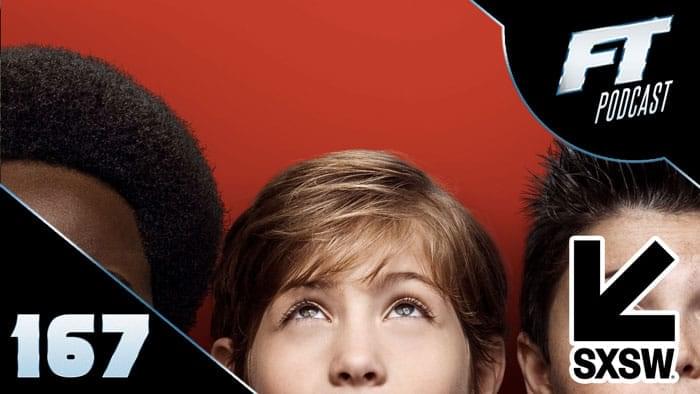
In Los Angeles, 2009, Arthur Pratt (Philip Baker Hall) is alone, his wife recently deceased and his son dead long before that. But he’s not the only one worse off. It’s the entire country as well. Social security’s gone. Rent control has been abolished. L.A. Unified is no more. The Veterans Hospitals ran out of money and likely the entire Department of Veterans Affairs too, leaving Arthur with no pension or stipend, giving his odd-minded, unfeeling landlord (Larry Cedar) more reason to evict him. And Medicare’s even more useless, as Arthur explains to a social worker that since his wife’s medical expenses weren’t covered that way, he had to pay for it out of pocket. You might think the country is bad enough right now, but guess who’s president in this year?
You got it. A Bush. Jeb Bush. Fortunately, the current political climate doesn’t seem to be leaning toward him (he’s opted out of running anyway), but if all of this actually happened to the United States, including the desertion of parks and beaches, I wouldn’t be surprised. Jeb Bush is the reason my family and I live in California; my father’s job as a business education teacher in Florida was threatened by the now-former governor not believing electives in schools to be as important as students passing the almighty FCAT exam. There have been some advantages to living here, such my father earning more money and certain things being cheaper, such as food. Plus, no high-cost hurricane insurance, which has gotten even higher because of more dangerous hurricanes in the past.
These thoughts alone prove “Duck” as not simply another story about a man searching for something. “Duck” isn’t just about watching Arthur and his newfound family, a duck he names Joe, try to get to the beach, their own patch of paradise. It forces us to consider who we are as people, how we live in our own cities, whether we control our lives or the cities do. It’s the latter for some things, but how much do our cities lord over us? Watching “Duck,” we also wonder what kind of country we’ll be in the next few years. The very early campaigning by presidential candidates for the 2008 election does enough of this, but seeing what Jeb Bush’s invisible presence has done to Los Angeles alone, besides the rest of the country with major changes to various programs (even recycling is over, with Republicans believing it advocates homelessness), we’re given cause to wonder. Is it just the people or the politicians themselves who make the most changes? It’s especially affecting during Arthur’s trek through the city how a bus driver, a garbageman and even addicts at a meeting have tucked themselves so far inside that there’s no people left. In this city, there might as well be shadows. Even the cinematography by Anne Etheridge acknowledges this, with the sun mournful over the state of society, sadness in colors as well as in the music by Alan Lazar.
But producer/writer/director Nicole Bettauer is sure that despite the overall mood of the country taking a hard fall, hope is still omnipresent, however brief. She finds this first in Philip Baker Hall, who has a weathered, expressive face that has been a boon for countless filmmakers. He can be any older man, living any kind of life. He does well here, with Arthur searching almost in vain for better days. He even plants a tree in what used to be a park and sprinkles his wife’s ashes around it, and waters it, the first spark of hope. Bettauer is also aware that in this future, there are people who would change with the policies. Cops who are briefly given custody of Arthur by two members of what’s called a Psychatric Evaluation Team (PET) don’t even know what to do about him and are frankly apathetic.
But then, she sees even more hope. It doesn’t come from the city, it comes from certain people, individual acts rather than one large policy change. Arthur meets a blind man named Norman (Bill Cobbs) and his dog, who are also trying to get to the beach, and the man is on his way first, not by choice, even though he wants to get there with Arthur, not by the rules of the uncaring bus driver who sees the bus as hers, not belonging to a bus company. Norman’s completely aware of the political policies that have turned Los Angeles into what might as well be dust. But he knows that in order to keep living, you have to do for yourself, but also be open to anyone who might join you along the way.
The most touching moments come from Amy Hill as Linh, who runs a nail salon located next to a strip of long-forgotten Hollywood Walk of Fame stars. She was once a refugee from across the world, who came to the United States for a better life for her daughter, but doesn’t believe her daughter’s life has gotten better. Her story is one of disappointment, but she still thrives on hope, glad to help remove some garbage stuck to Joe’s foot, and glad to have a kind, sympathetic conversation with Arthur, who genuinely understands. After all, he’s been through the entire city with a duck in tow, living off whatever the land has left. And we in turn are blessed with a thoughtful look at who we might be and what we can be, with just a little tenderness that remains embedded in the heart for a long time after.
